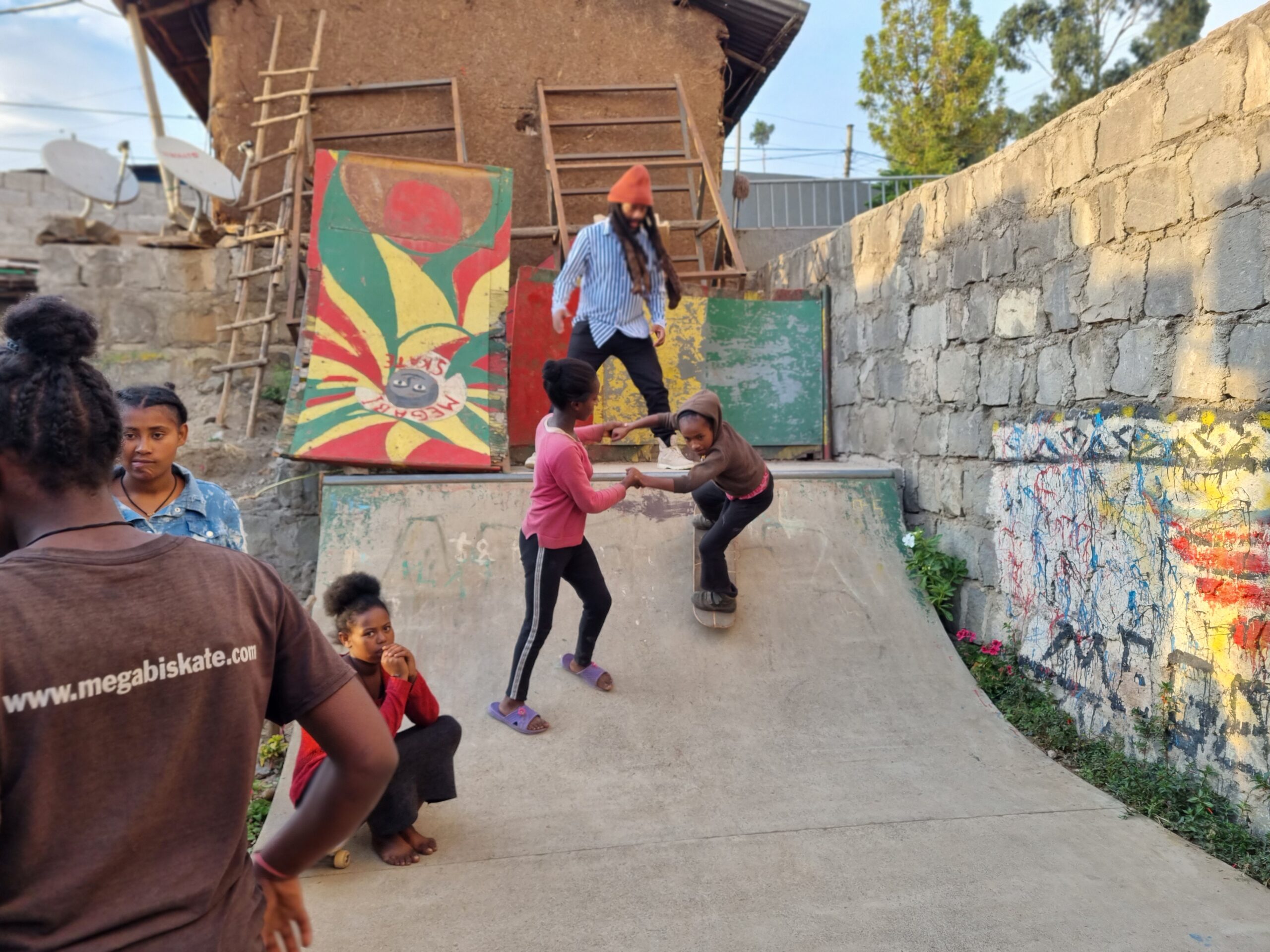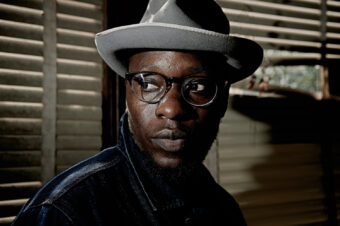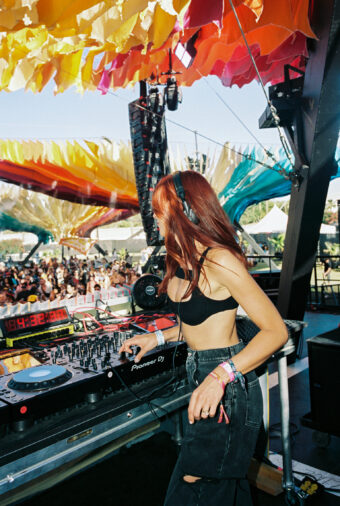All it took was one skateboard. Musician Israel Dejene was working in Sweden when he fell in love with skateboarding and brought a board back to his neighborhood of Shiro Meda, on the outskirts of Addis Ababa, the capital of Ethiopia, at the foot of Mount Entoto.
“It was only one board,” he says via video call, pointing a finger in the air. “Soon everyone in the community was coming over to try it.”
Young people from around the area came to his home where they would take turns skateboarding and talking about their lives. A small community soon formed, evolving into Megabi in 2007, a non-profit organization that improves the lives of Ethiopian youth through skateboarding, music and art.

“I want the kids in my neighborhood to know that they are loved, their dreams are important, and through leading by example they can bring about real change,” is his opening, inspiring statement on the Megabi website.
“My goal is to inspire the neighborhood kids because that’s who I am. That’s where I was born and raised, and I still live in the area,” he says. “We don’t have any place for young people where they can express themselves. There are so many places where these kids can run into trouble and head down bad roads. The neighborhood is very poor and there is nothing to inspire them to dream big, to be positive throughout life’s struggles. I want to fix that.”
Dejene and his team of mentors and leaders engage kids through creative pursuits and other activities. One leader, his younger sister, Muluken Dejene, has been skating for more than 15 years.
“We always say that if we fall when we skate, we always get up to skate again – that’s been a big lesson for me in my ups and downs,” she says. “Through skate, I know that I can overcome the challenges and troubles in life.”
“And it’s also a good workout so it’s very good for you too,” she adds, smiling.
Israel vividly remembers one girl, Samuel, who started at Megabi at four years old. “She wanted to drop into the ramp and do it by herself and I was so nervous. But when she dropped in, it was like the happiest, most satisfying thing. It’s so exhilarating seeing them grow and improve.”
The good work of Megabi has attracted the attention and support of pro skaters like Tony Hawk and Nyjah Huston, who helped build their bustling Megabi skatepark, which now has more than 30 skateboards and has seen hundreds of young people roll down its ramps over the years. Megabi translates to “someone that gives life to others” and was a nickname given to Israel by his father, because as a four year-old Israel would wake up early and walk to get bread for his family.
Israel says of the Megabi kids: “When they’re on the board, they’re in their own world and it empowers them.” He says that stems from the confidence built on the board, and, for the girls, conversations about problems they may be facing.
“It’s more than skateboarding. We have a meeting – a coffee ceremony – with the girls once a week and they talk about their problems and we all try to fix that problem. That’s what’s really important to me.”
Megabi has plans to build a community resource center and creative space where young people can access computers and other tools. (That has been slowed by the organization still recovering from a fire in 2021.)
Israel says girls and women in the area don’t have a lot of free, personal time due to their cultural responsibilities at home.
“We want to break that barrier so that girls can also find their own power and believe in themselves to do more…so they can see that their potential is greater than their circumstances,” he says.
Because of her time at Megabi and having gained hope for more in life, one such girl, Idilawit, says she now has dreams of becoming a ground-breaking research scientist — and a skateboarder.
“Yes, a scientist-skateboarder,” she confirms. “That’s what I want to be.”




